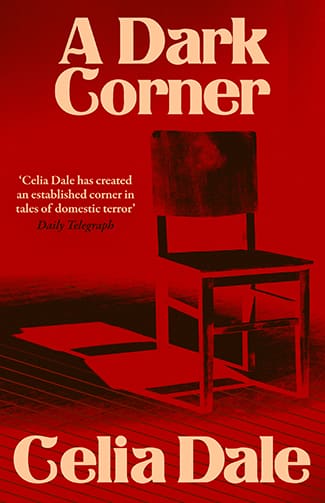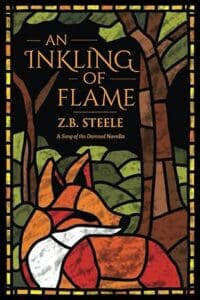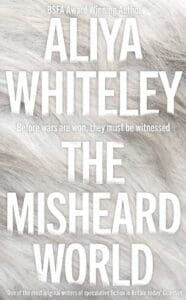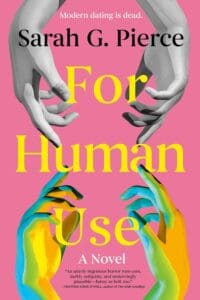
Synopsis:
Young Errol Winston arrives in London in search of a job and a better life, but he finds himself homeless when the city’s racist landlords refuse to rent to him. At last he seems to have a stroke of good luck when he accidentally winds up at the front door of Mr and Mrs Didcot, who offer to let him stay. The elderly couple seem kindly and harmless enough, but Errol will soon discover that behind the veneer of apparent respectability a dreadful truth lies hidden, a terrible secret that will be revealed in a horrifying climax.
First published in 1971, Celia Dale’s A Dark Corner is a chilling work of domestic horror that shows how true evil often lurks closer than we think, perhaps even just behind our neighbor’s lace curtains …
Review:
Today, we are blessed to have so many wonderful women in horror, from reviewers to readers to authors. Gemma Amor, Ania Ahlborn, Rachel Harrison, just to name a few, are duly celebrated here, but it’s also imperative we acknowledge the sobering reality: it’s not always been so. There’s a historical oversight of numerous remarkable female writers- and Celia Dale is one of them. She takes the domestic and the mundane, and somehow extracts every ounce of terror from it. This novel is so taut with suspense, you could probably strum it like a guitar string, and it’s an utter tragedy that since its release in 1971, it’s never received the praise it deserves.
“A Dark Corner,” begins with the staple dark and stormy night, and a knock on the door. Errol Winston is searching for a room he found in the paper, and considering he’s soaked to the skin, he’s hoping this will be the place. Mrs Nelly Didcot opens the door, but much to Errol’s dismay, he has misread the address, and she has no room to let. The best she can do is pity him with a warming mug of tea and a nice seat by the fire. When she hears his hacking cough, she consults her husband Harry, and the pair decide they can’t allow him to go back out in the rain in good conscience, and offer him their sofa for the night. Errol thanks them, and heads to work the next morning, planning to stop by the property he found advertised in the paper after he finishes. Well, the room is “sold,” (although it seems more likely it’s a result of his skin colour) and he has no one else to turn to other than the kindly Didcots.
This is a story of rampant hypocrisy and bravado. These themes are largely explored through the character of Harry Didcot. He’s a staunch advocate of hard-work, and tradition. He insists on taking bizarre evening walks with his tenant, in which he does little other than bemoan the perceived decline of morality in today’s youth. Ironically, he also proclaims himself to not be a raging racist, he has after all taken a black man into his home. He boasts his open-mindedness and altruism whilst continuously spouting racial stereotypes, and drawing unfavourable comparisons to those with darker skin tones. Perhaps the one thing we are immediately certain about in regard to Harry Didcot is that he is at best an unremarkable man, and is at worst using a facade of respectability to cover up a more sinister streak.
From its deliberately frustrating ending, to Mr Didcot’s poorly disguised discrimination, this is at its simplest a story of inequality, and this story is told through the character of Errel. With the tragic and infuriating way things unfold, it’s reasonable to suggest that “A Dark Corner,” is referring to Errel (a black man) who finds himself between a rock and a hard place, or as some would say, backed into a corner. Whilst Errel is not a character we can immediately trust (more on this in just a moment) it’s undeniable he falls victim to multiple racial injustices from beginning to end, and I must say, it was nice to stumble across commentary shooting the attitudes at the time down as opposed to promoting them.
When I think of 70s horror, my mind immediately springs to campy and bizarre (and, as we’ve established, mildly problematic) places, such as Guy. N Smith’s “Night of The Crabs.” Let me assure you, you will find nothing of the sort here. In fact, you’ll find very little at all. There’s no real action, there’s nothing explicit or graphic, and it’s completely devoid of a single vampire, or ghost-there’s not a murderous crustacean in sight. It’s not the most engaging of reads, and if you’re a fan of short, sharp and un-surreptitious, I’m afraid it won’t be for you.
Dale relies entirely upon her skill as a writer to build tension. The sudden arrival of Errol on the Nelly and Harry’s doorstep incites a lingering unease, but you certainly don’t trust the Didcot’s either. Despite the sparse plot, and the snail’s pace at which things develop, a constant state of anxiety and paranoia pervades, and knowing that at some point, someone will do something bad, was, at least for me, enough.
A captivating exploration of human nature and societal intricacies, the much under-appreciated Celia Dale eschews elements of conventional horror in favour of creating apprehension, uncertainty, and bitterness in the everyday. It’s quietly intense and incredibly profound, in a genre that’s often defined by its extremes, it’s a reminder that horror is not limited to the supernatural, and that in fact, we are often the monsters.









Wow George. Sensational review. Have you considered become an author!!! (Handsome as well!)